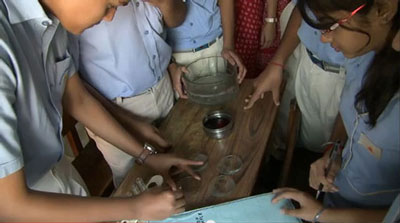TI-AIE: Transforming teaching-learning process: managing resources for effective student learning
What this unit is about
As a school leader, you are responsible for ensuring that all students have the opportunity and support to participate fully in learning. This will only be possible if resources are managed effectively and for the explicit purpose of improving learning. By far the most important resource that a school leader will manage is human resources. You have access to a group of people (teachers, other staff, students, parents and community members) who all can contribute skills and knowledge to supporting learning. Alongside human resource management you will also be responsible for managing financial and material resources in order to ensure they are suitable, accessible and used effectively to improve student learning.
Schools in India have widely differing contexts, ranging from the environment and climate of their geographical location to the cultures and languages of their students. A school could be really small, such as a single-teacher multi-grade school in a rural area, or have large numbers of staff for a student population running into thousands on the plains in a big city. Students will have access to different types of resources outside school but all school-based resources should be available to all students equally, to meet their learning needs.

Many schools have limited physical resources to support learning, but once the mindset changes, all resources in the school – including the people, its surroundings, and, beyond, in the wider community – become available as resources for learning.
School leaders and teachers need to adopt this wider perception of educational resources to be able to enrich the teaching–learning experience of both teachers and students.
This unit will help you widen your view of what constitutes an educational resource and will encourage you to explore how best to ensure resources are being used to their maximum effect.
Learning Diary
During your work on this unit you will be asked to make notes in your Learning Diary, a book or folder where you collect together your thoughts and plans in one place. Perhaps you have already started one.
You may be working through this unit alone, but you will learn much more if you are able to discuss your learning with another school leader. This could be a colleague with whom you already collaborate, or someone with whom you can build new relationship. It could be done in an organised way or on a more informal basis. The notes you make in your Learning Diary will be useful for these kinds of meetings, while also mapping your longer-term learning and development.
